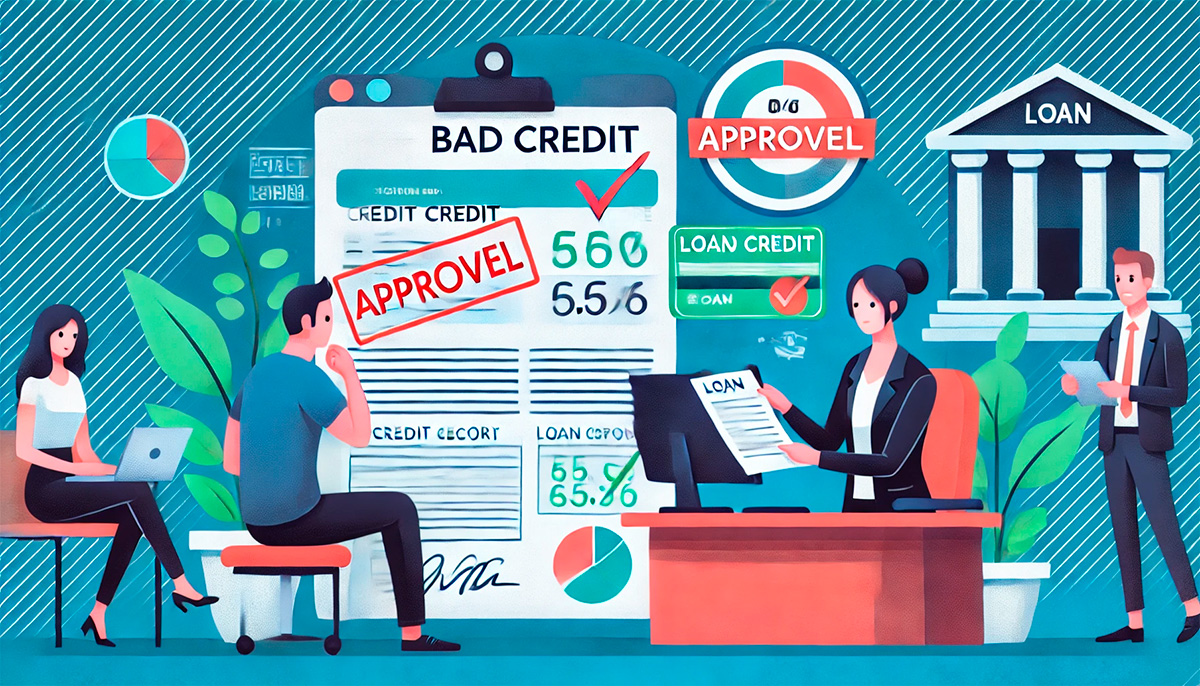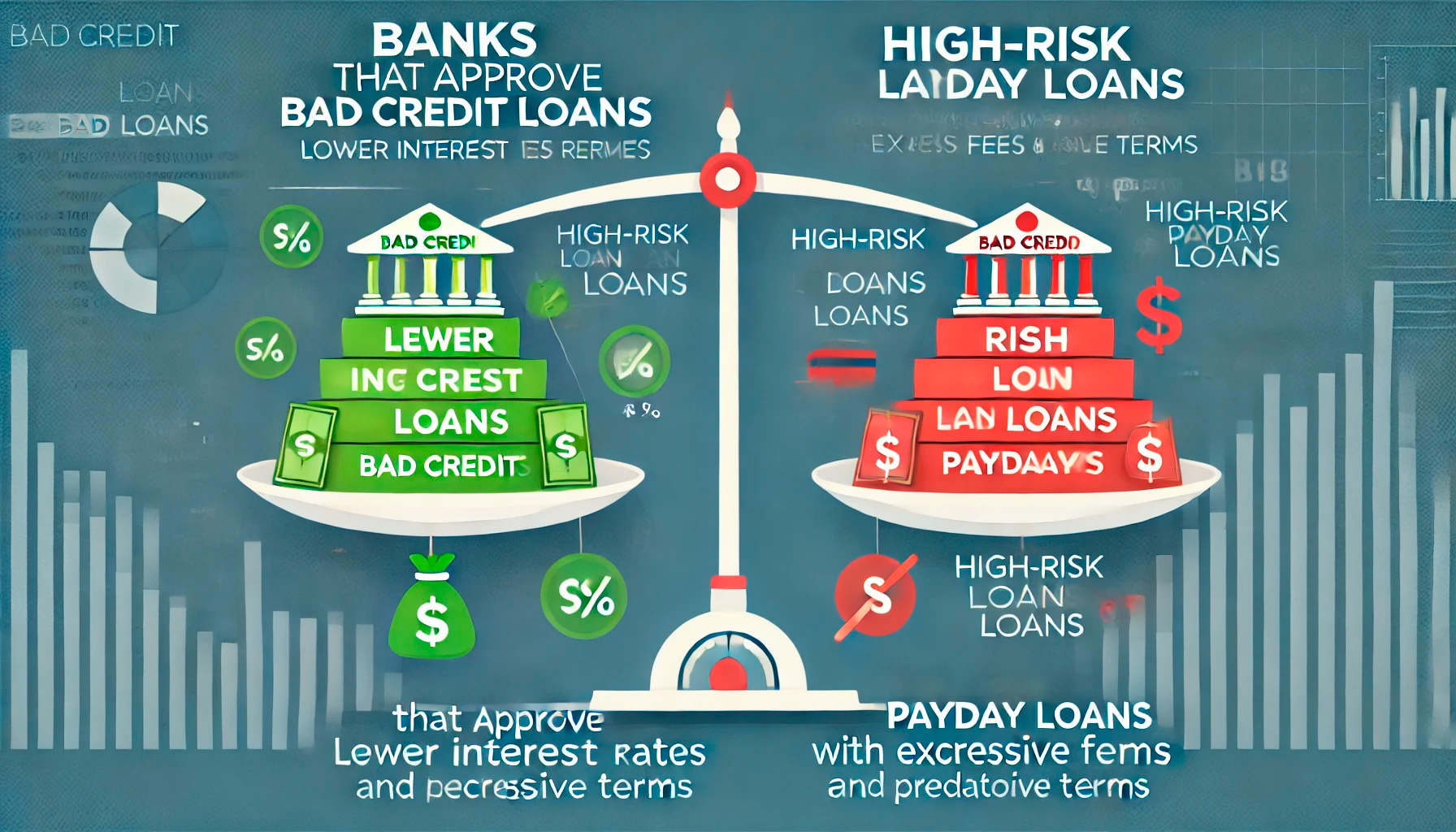Having a bad credit history can feel like a significant barrier when it comes to securing a loan. Whether you need funds for an emergency, debt consolidation, or a major purchase, a low credit score can make traditional lenders hesitant to approve your application. However, there are still options available for individuals with less-than-perfect credit. This article explores loans for people with bad credit history, highlighting which banks and financial institutions are more likely to approve such applications and what you can do to improve your chances of success.
Understanding Bad Credit Loans
Bad credit loans are specifically designed for individuals with low credit scores or a history of financial difficulties. These loans often come with higher interest rates and stricter terms compared to traditional loans, as lenders view borrowers with bad credit as higher-risk. However, they provide an opportunity for individuals to access funds when they need them most and, in some cases, rebuild their credit over time.
It’s important to note that not all banks and lenders offer bad credit loans. Those that do typically have specific eligibility criteria and may require additional documentation or collateral to mitigate their risk. Understanding how these loans work and which banks are more likely to approve them can help you make an informed decision.
Banks That Approve Loans for Bad Credit
While many traditional banks have strict credit requirements, some are more lenient and offer loan products tailored to individuals with bad credit. Below is a table highlighting banks and financial institutions that are known to approve loans for people with poor credit histories:
| Bank/Institution | Loan Type | Key Features |
|---|---|---|
| OneMain Financial | Personal Loans | Offers loans to borrowers with low credit scores; requires income verification. |
| Avant | Personal Loans | Specializes in loans for fair to poor credit; fast approval process. |
| Upstart | Personal Loans | Considers education and employment history in addition to credit score. |
| LendingPoint | Personal Loans | Focuses on recent credit behavior rather than overall credit history. |
| Capital One | Auto Loans | Offers auto loans to borrowers with bad credit; pre-qualification available. |
| Wells Fargo | Secured Personal Loans | Requires collateral but may approve borrowers with poor credit. |
Types of Loans Available for Bad Credit
Individuals with bad credit have several loan options to consider, each with its own pros and cons. Personal loans are a popular choice, as they can be used for various purposes, such as debt consolidation, medical expenses, or home repairs. Some lenders specialize in offering personal loans to borrowers with poor credit, though these often come with higher interest rates.
Secured loans, which require collateral such as a car or savings account, are another option. Because the lender has a form of security, they may be more willing to approve borrowers with bad credit. Auto loans are also available for individuals with poor credit, though the interest rates may be higher, and the loan terms less favorable.
Payday loans and cash advances are short-term options, but they come with extremely high interest rates and fees, making them a risky choice. It’s generally advisable to explore other alternatives before considering these types of loans.

How to Improve Your Chances of Approval
While some banks and lenders are more willing to work with individuals with bad credit, there are steps you can take to improve your chances of approval. Start by checking your credit report for errors and disputing any inaccuracies. Even a small improvement in your credit score can make a difference.
Providing proof of stable income and employment can also strengthen your application. Lenders want to see that you have the means to repay the loan, even if your credit history is less than ideal. If possible, consider applying with a co-signer who has good credit. A co-signer agrees to take responsibility for the loan if you default, which can significantly increase your chances of approval.
Finally, be prepared to explain any negative marks on your credit report. Some lenders may be willing to overlook past financial mistakes if you can demonstrate that you’ve taken steps to improve your financial situation.
Alternatives to Traditional Bank Loans
If traditional banks are not an option, there are alternative lenders and financial products that cater to individuals with bad credit. Credit unions, for example, are nonprofit organizations that often have more flexible lending criteria than traditional banks. Some credit unions offer payday alternative loans (PALs), which are small, short-term loans with lower interest rates than payday loans.
Online lenders and peer-to-peer lending platforms are another option. These platforms connect borrowers with individual investors who may be more willing to take on higher-risk loans. While interest rates can still be high, they are often more competitive than those offered by payday lenders.
Risks of Bad Credit Loans
While bad credit loans can provide much-needed financial relief, they come with risks that should not be overlooked. High interest rates and fees can make these loans expensive, and failing to make payments on time can further damage your credit score. It’s essential to carefully review the terms of any loan offer and ensure that you can afford the monthly payments before signing an agreement.
Additionally, some lenders may engage in predatory practices, such as charging excessive fees or offering loans with unrealistic repayment terms. Always research the lender’s reputation and read reviews from other borrowers to avoid falling victim to such practices.
Conclusion: Finding the Right Loan for Your Needs
Securing a loan with bad credit may seem challenging, but it’s not impossible. By understanding your options and choosing the right lender, you can find a loan that meets your needs and helps you rebuild your credit over time. Whether you opt for a personal loan, secured loan, or alternative lending option, it’s crucial to borrow responsibly and make timely payments to avoid further financial difficulties.
Remember, improving your credit score should be a long-term goal. By making consistent payments and managing your finances wisely, you can gradually rebuild your credit and gain access to more favorable loan terms in the future. With the right approach, you can overcome the challenges of bad credit and achieve your financial goals.


